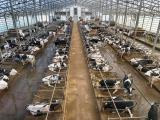May 27, 2008 (CIDRAP News) – Indonesia's health minister asserted yesterday that 112 other nations at a meeting in Geneva last week expressed support for her country's position on avian influenza virus sharing, according to an Indonesian newspaper.
At a press conference in Jakarta yesterday, Siti Fadilah Supari said support for Indonesia's sample-sharing proposals came on May 21 at a Non-Aligned Movement (NAM) health ministers meeting, which was held alongside the World Health Organization's (WHO) annual meeting in Geneva, the Jakarta Post reported today. The NAM, founded in 1955, is an organization of countries that consider themselves not aligned with or against any superpower. Supari said representatives of 112 countries at the NAM health ministers meeting supported Indonesia's demands.
"We received moral and political support from health ministers from England, Russia, Iran, and Australia," Supari said, according to the Post report. The NAM Web site does not list England or Australia among its 118 member countries.
In early 2007, Indonesia announced it had stopped sharing H5N1 influenza virus samples with the WHO out of concern that developing countries that share such samples will not have access to vaccines that drug companies in rich countries may produce from the samples. The country has shared only a few samples since then. It has pushed for new virus-sharing policies that it considers more transparent and fair to it and other developing nations.
Supari continues talks with US
During the WHO's annual World Health Assembly, Supari urged world health officials to replace the WHO's virus-sharing system, saying it favors developed nations, the Post reported. Also during the meeting, she met with US Health and Human Services Secretary Mike Leavitt to discuss possible solutions to the virus-sharing impasse, in a continuation of talks that had begun in April.
Leavitt mentioned the latest talks at a May 19 press conference in Geneva. "Actually, not a great deal changed as a result of our meeting today," he told reporters, according to a transcript published on the US State Department Web site.
He emphasized that the United States wants to help forge needed improvements in the sample-sharing system. "What we aren't willing, of course, to do is engage in any system that would involve compensation for virus samples," he said. "This is a 60-year-old tradition. That's one of the greatest public health successes in history."
A progress report on multilateral efforts to settle the sample-sharing issue, including ideas raised at the World Health Assembly, is expected in July, Leavitt said. A WHO working group dedicated to solving the problem, which has met several times, will meet again in November. "And we're hopeful that by November of this year we'll have a protocol under which that [virus sharing] can be done," Leavitt said.
In a recent book, Supari accused the United States of planning to make a biological weapon out of the H5N1 virus and charged that the United States and the WHO have conspired to profit from H5N1 vaccines.
Genetic data to be shared
Indonesia recently announced it would begin sharing H5N1 viral sequences with a new public database, the Global Initiative on Sharing Avian Influenza Data (GISAID), which was formed by a group of 70 scientists and health officials to promote greater sharing of H5N1 sequences.
GISAID has said the public can freely access the database, which includes both human and animal H5N1 sequences, after they register and agree to share and credit the use of others' data, analyze findings jointly, publish results collaboratively, and refrain from pressing intellectual property rights issues that relate to diagnostic, drug, and vaccine developments.
Experts have praised the new development, but some have said that having actual H5N1 isolates is more useful because they are needed to make seed strains for vaccines and are critical for determining antigenicity, transmissibility, and pathogenicity.
See also:
Apr 17 CIDRAP News story "HHS secretary blogs on impasse with Indonesia"
May 19 CIDRAP News story "Experts welcome Indonesia's vow to share H5N1 data"















